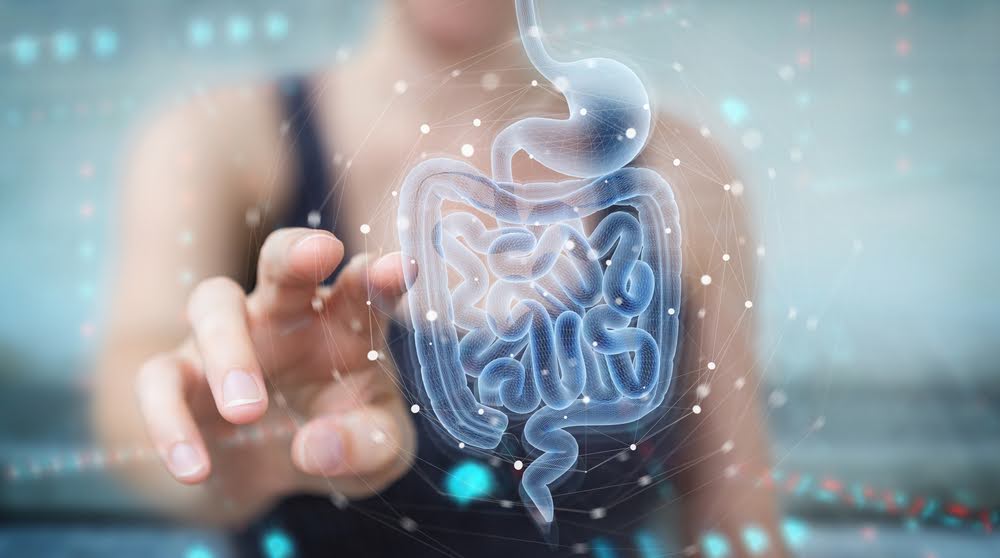The gut-brain connection is more significant than you might think. Whenever you feel butterflies in your stomach or gut-wrenching distress, it’s a clear indication of how your brain affects your stomach.
Interestingly, the reverse is also true: what happens in your stomach can influence your brain. One particular aspect of digestive health that has a surprising impact on your brain is your intestinal flora.
The Marvels of Your Intestinal Flora and the Gut-Brain Connection
Your digestive tract is far from just a simple pipe through which food passes. It is home to over 100 trillion bacteria of around 500 different species, collectively known as your intestinal flora. Remarkably, these microorganisms outnumber your body’s own cells by ten to one. This intricate ecosystem plays a crucial role in the gut-brain connection.
When you are born, your digestive tract is sterile, but within the first two years of life, various strains of bacteria establish themselves. Each person has a unique mix of intestinal bacteria, similar to a fingerprint. These beneficial microorganisms are essential for your health, aiding in digestion, keeping harmful bacteria in check, and maintaining a healthy immune system. They also help you absorb vital minerals like calcium, zinc, and magnesium, and even produce essential vitamins such as vitamin K and the B complex.
Disrupting the delicate balance of these bacteria can lead to a state called dysbiosis, which can cause digestive upset and other health issues. This disruption can also interfere with the gut-brain connection, highlighting the importance of maintaining a healthy balance of intestinal flora for overall well-being.
Factors Disrupting Digestive Health and Affecting Brain Health
Maintaining a healthy balance of gut bacteria is crucial for brain health. Several factors can negatively impact this delicate balance, leading to various health issues, including disruptions in the gut-brain connection. Understanding these factors can help you take steps to protect both your digestive and mental well-being.
- Antibiotics: While necessary for fighting infections, antibiotics can kill both harmful and beneficial bacteria, leading to an imbalance known as dysbiosis. This can result in digestive upset and impact brain health.
- Chlorine and Fluoride in Water: These chemicals, commonly found in tap water, can harm beneficial bacteria in your gut, disrupting the balance needed for optimal health.
- Artificial Sweeteners: Some artificial sweeteners can negatively affect your gut flora, leading to potential health issues.
- Antibacterial Soap: Overuse of antibacterial soap can reduce beneficial bacteria on your skin and potentially impact your gut flora through skin contact.
- Protein Deficiency: A lack of protein in your diet can affect the health of your gut bacteria, disrupting their balance and function.
- Overacidity: Excessive acidity in your digestive system can harm beneficial bacteria, leading to an imbalance.
- Stress: Chronic stress can negatively impact your gut bacteria, leading to dysbiosis and affecting your brain health.
- Heavy Metal Exposure: Exposure to heavy metals, often found in contaminated food and water, can harm your gut bacteria and disrupt their balance.
- Diet: Poor dietary choices, such as high sugar and low fiber intake, can negatively impact your gut bacteria, leading to an imbalance that affects both your digestive and brain health.

What Happens When You Have Poor Digestive Health?
The connection between digestive health and brain function, often referred to as the “gut-brain axis,” highlights the profound impact that your gastrointestinal system can have on your mental and cognitive health. This relationship is facilitated by multiple pathways, including the vagus nerve, immune system, and through various neuroactive substances produced in the gut.
1. Mood Regulation
The gut produces a vast majority of the body’s serotonin, a neurotransmitter that helps regulate mood, happiness, and anxiety. Imbalances in gut bacteria can affect serotonin production, potentially leading to mood disorders such as depression and anxiety.
For instance, individuals experiencing digestive conditions like IBS (Irritable Bowel Syndrome) often report higher instances of anxiety and depression, suggesting a direct link between gut distress and emotional fluctuations.
2. Cognitive Functions
Emerging research suggests that a healthy gut may influence cognitive processes like learning, memory, and decision-making. The gut microbiome can produce other neuroactive chemicals, including dopamine and gamma-aminobutyric acid (GABA), which play crucial roles in cognitive functions and maintaining mental clarity. Disruptions in these chemical productions due to poor digestive health can lead to brain fog and difficulty concentrating.
3. Inflammation and Neurological Health
Chronic inflammation, often stemming from gut issues, can have detrimental effects on the brain. Conditions like leaky gut syndrome, where harmful substances enter the bloodstream through gaps in intestinal walls, can trigger systemic inflammation.
This state is associated with an increased risk of neurodegenerative diseases, such as Alzheimer’s and Parkinson’s disease, illustrating the long-term impacts of gut health on brain function.
4. Stress Response
The gut-brain axis also plays a critical role in how the body responds to stress. An unhealthy gut can send signals to the brain that trigger a heightened stress response, which can exacerbate feelings of stress or anxiety. Conversely, chronic stress can lead to imbalances in gut bacteria, creating a vicious cycle that can affect both physical and mental health.
5. Sleep Quality
The gut also influences sleep quality through its production of melatonin, the hormone responsible for regulating sleep cycles. An imbalance in gut flora can disrupt melatonin production, leading to sleep disturbances. Poor sleep can then contribute to a range of cognitive issues, including impaired memory and reduced problem-solving abilities.
The Gut Bacteria and Brain Health Connection
Maintaining a healthy balance of gut bacteria is essential for brain health. Two of the most prevalent and beneficial bacteria in your gut are Lactobacilli and Bifidobacteria. These “good guys” play a significant role in the gut-brain connection, providing numerous benefits for your mental well-being.
The Good Guys: Lactobacilli and Bifidobacteria
Lactobacilli and Bifidobacteria are critical for maintaining a healthy gut and brain. They act as antioxidants, protecting your brain from free radical damage. These bacteria help lower immune system compounds called cytokines, which regulate the intensity of your immune response. Elevated cytokine levels are linked to mood disorders, depression, anxiety, and cognitive disorders. By keeping cytokine levels in check, these good bacteria support better mental health.
The Bad Guys: Harmful Bacteria
An overabundance of harmful bacteria in your gut can produce toxic byproducts called lipopolysaccharides. These substances have several negative effects on your brain:
- Lower dopamine and serotonin levels: Dopamine and serotonin are crucial neurotransmitters that regulate mood and cognitive function.
- Damage to the hippocampus: The hippocampus is the part of the brain responsible for memory, and damage to it can impair cognitive abilities.
- Increased levels of cortisol: Cortisol is a stress hormone that, when elevated, can lead to chronic stress and anxiety.
- Increased inflammation: Chronic inflammation is linked to various mental health disorders, including depression.
- Increased oxidative damage: Oxidative stress can harm brain cells and contribute to neurodegenerative diseases.
By understanding the roles of beneficial and harmful bacteria, you can take steps to support the good guys and minimize the impact of the bad guys. This balance is crucial for maintaining optimal gut bacteria and brain health.
Achieving and Maintaining Balance
Achieving and maintaining a healthy balance of gut bacteria is crucial for optimal brain health. The best place to start is your diet. Incorporate fermented foods into your diet. These foods are rich in probiotics, which are beneficial bacteria that support gut health.
If you can’t consume enough fermented foods to make a significant difference in your digestive health, consider taking a probiotic supplement. Look for one that contains Lactobacilli and Bifidobacteria with 10 billion to 20 billion active CPD (Cultures Per Dose). The more strains of bacteria included, the better.
Avoid Risk Factors
- Limit Antibiotics: Use antibiotics only when necessary and always follow them with a probiotic regimen to restore balance.
- Filter Water: Use a water filter to remove chlorine and fluoride from your drinking water.
- Avoid Artificial Sweeteners: Limit or avoid the use of artificial sweeteners that can negatively impact your gut flora.
- Minimize Antibacterial Products: Reduce the use of antibacterial soaps and cleaning products.
- Maintain a Balanced Diet: Ensure your diet includes sufficient protein and fiber, and avoid excessive acidity by reducing the intake of acidic foods and beverages.
- Manage Stress: Practice stress-reducing techniques such as mindfulness, meditation, and regular exercise to support gut health.
- Avoid Heavy Metals: Be cautious of heavy metal exposure by choosing clean, organic food sources and using filtered water.

My Personal RX on Boosting Digestive Health for Brain Wellness
The connection between the gut and the brain, often referred to as the gut-brain axis, plays a critical role in overall mental and physical health. Enhancing digestive health can lead to improved brain function, mood stabilization, and a stronger immune system. As a healthcare professional, I recommend a holistic approach that includes targeted supplements, informed dietary choices, and educational resources to fully harness the benefits of a healthy gut-brain axis.
- Incorporate MindBiotic Supplements: MindBiotic is a pioneering supplement designed to optimize the gut-brain axis. It combines probiotics, prebiotics, and Ashwagandha KSM 66 to support beneficial gut bacteria growth while reducing stress and improving cognitive function. Integrating this supplement into your daily routine can significantly enhance both gut and brain health.
- Adopt a Gut-Friendly Diet: Focus on a diet rich in fiber from fruits, vegetables, and whole grains. Include fermented foods like yogurt, kefir, and sauerkraut, which are natural sources of probiotics. These foods support a healthy microbiome, which is essential for both digestive and cognitive health.
- Stay Hydrated: Adequate hydration is crucial for maintaining the mucosal lining of the intestines and supporting the overall function of the digestive system, which, in turn, benefits brain health.
- Regular Exercise: Physical activity can stimulate the movement of food through the digestive system, reducing the risk of constipation and promoting well-rounded digestive health. Exercise also releases chemicals that positively impact brain health and mood.
- Manage Stress: Chronic stress can disrupt the gut microbiome and worsen gut health, indirectly affecting brain function. Utilize stress management techniques such as yoga, meditation, and deep-breathing exercises to maintain both mental and digestive health.
- Learn More About Your Gut-Brain Axis: My Heal Your Gut, Save Your Brain e-book provides a deep dive into the science behind the gut-brain axis and offers a holistic approach to improving both gut health and mental health. It is a valuable resource for anyone looking to enhance their understanding and application of gut-brain health principles.
- Limit Intake of Processed Foods: Processed and high-sugar foods can harm the gut microbiome, leading to inflammation and a decline in mental health. Reducing these foods in your diet can help maintain a healthy gut flora and improve brain function.

Sources:
- Cooke, M. B., Catchlove, S., & Tooley, K. L. (2022). Examining the influence of the human gut microbiota on cognition and stress: A Systematic Review of the literature. Nutrients, 14(21), 4623. https://doi.org/10.3390/nu14214623
- Amara, A., & Shibl, A. (2015). Role of Probiotics in health improvement, infection control and disease treatment and management. Saudi Pharmaceutical Journal, 23(2), 107–114. https://doi.org/10.1016/j.jsps.2013.07.001
- Kachur, T. (2018, June 1). This common household additive could lead to bowel irritation. CBC. https://www.cbc.ca/news/canada/household-additive-could-lead-to-bowel-irritation-1.4686235
- Ghosh, S., Nukavarapu, S. P., & Jala, V. R. (2023). Effects of heavy metals on gut barrier integrity and gut microbiota. Microbiota and Host, 2(1). https://doi.org/10.1530/mah-23-0015
- WebMD Editorial Contributors. (2023, April 9). How to improve your gut health and mental health. WebMD. https://www.webmd.com/digestive-disorders/how-to-improve-your-gut-health-and-mental-health
- Jewell, T. (2019, February 2). What causes dysbiosis and how is it treated? Healthline. https://www.healthline.com/health/digestive-health/dysbiosis



















